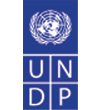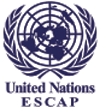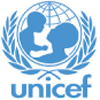India: UNDP poverty alleviation plan for BIMARU States
 The United Nations Development Programme (UNDP) has chalked out a poverty alleviation plan for Bihar, Madhya Pradesh, Rajasthan, Uttar Pradesh (BIMARU) states of India.
The United Nations Development Programme (UNDP) has chalked out a poverty alleviation plan for Bihar, Madhya Pradesh, Rajasthan, Uttar Pradesh (BIMARU) states of India.
The five year plan will focus on empowerment of people and enable them to participate in decision making. The Country Director of UNDP, Dierdre Boyd, stated that these are the states that generally have the highest rate of poverty and low human development. UNDP wants to focus on how to strengthen the local people and make them involve in decision-making. Besides poverty alleviation, the UNDP plan will also incorporate HIV/AIDS awareness, financial inclusion and access to credit. Optimum utilisation of natural resources, environmental protection in the backdrop of climate change and preparedness to counter natural disasters would be another aspect of the plan. UNDP is also trying to support the Indian Government on the implementation of the National Rural Employment Guarantee Programme (NREGP).

UN launches initiative to improve Internet access in Asia-Pacific region
 The United Nations Economic and Social Commission for Asia and the Pacific (ESCAP) has launched a new database to promote the development of telecentres and common community centres so that people in the economically backward and remotest areas, from farmers to students gain access to computers and the Internet.
The United Nations Economic and Social Commission for Asia and the Pacific (ESCAP) has launched a new database to promote the development of telecentres and common community centres so that people in the economically backward and remotest areas, from farmers to students gain access to computers and the Internet.

The Telecentre Online Database will cover more than 12000 telecentres in 16 countries. The online database will also provide statistical data and information on individual countries and specific projects, with information accessible by a keyword search. The project is a part of a larger initiative of the UN’s five regional commissions called ‘Knowledge networks through ICT access points for disadvantaged communities,’ which aims to empower poor and disadvantaged communities, particularly women by converting selected e-Centres into global knowledge hubs to bolster communities’ abilities to organise, share and disseminate knowledge.
UN releases e-Government readiness
 The United Nations (UN) has released a survey report on e-Government readiness around the world. The United Arab Emirates (UAE) has been the highest ranked country in the Middle East. By this, UAE has moved up to 32nd spot from 42nd in 2005.
The United Nations (UN) has released a survey report on e-Government readiness around the world. The United Arab Emirates (UAE) has been the highest ranked country in the Middle East. By this, UAE has moved up to 32nd spot from 42nd in 2005.
All the Gulf countries made major improvements reflecting the regional drive towards developing knowledge-based economies. The survey was based on the impact of the regional Information Technology (IT) industry. According to the UN report, UAE is among only a handful of countries that uses eMail and RSS (Really Simple Syndication) feed system to interact with its citizens. It is among the top five countries in terms of enabling transactions between the government and citizens. The UAE’s Ministry of Labour website was highlighted as one of the few government sites anywhere with an electronic signature. According to the UN report, regional e-Government sites also came out as very progressive like Kuwait’s ministry of social welfare was noted for offering online account creation, form submission and payment, while Jordan’s Ministry of Education was noted for allowing online payments as well as encouraging citizen participation. The Qatari government’s new web portal ‘Hukoomi’, which was unveiled in February 2008 also provides an impressive array of 275 services, 56 of which are specific e-Services.
UNICEF sends emergency education supplies to Zambia
 The United Nations Children’s Fund (UNICEF) is providing emergency support to flood affected Zambian schools. UNICEF has contributed in 58 ‘schools-in-box’ from its supply division in Copenhagen. The Zambian Ministry of Education will provide the learning materials for all the flood affected children who wish to study.
The United Nations Children’s Fund (UNICEF) is providing emergency support to flood affected Zambian schools. UNICEF has contributed in 58 ‘schools-in-box’ from its supply division in Copenhagen. The Zambian Ministry of Education will provide the learning materials for all the flood affected children who wish to study.
The highly portable materials are designed to provide teachers and students with everything they need to resume school, an extremely important activity especially for children whose families have been forced to flee their homes because of rising floodwaters or in areas where school buildings have been damaged or destroyed. Each schools-in-box contains enough supplies for 100 children, which will be distributed over 40 community and government schools in flood damaged areas of Southern, Lusaka, and Western Provinces. The kits contain learning material for students from standard 1-9 and include exercise books; slates, an inflatable globe, a student register; crayons, pencils, pencil sharpeners, ball-point pens and felt-tip pens; erasers; two chalkboards; chalk and chalk duster; chalkboard paint; a chalkboard compass and ruler; a clock; flipchart markers; scissors; tape; paint brushes; several educational posters; over 90 coloured wooden cubes; book bags; rulers; safety scissors; and a metal box for transport and storage. UNICEF Zambia will be providing $139,000 in emergency supplies to the Ministry of Education, including 36 large tents and 40 recreation kits which include volleyballs, netballs, footballs, nets, and whistles.
Be a part of Elets Collaborative Initiatives. Join Us for Upcoming Events and explore business opportunities. Like us on Facebook , connect with us on LinkedIn and follow us on Twitter, Instagram.











